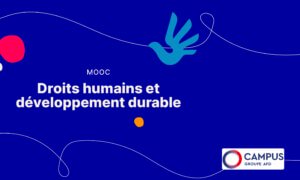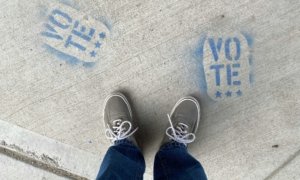Consultancy : Water Resources Management and Climate Adaptation – Tigris-Euphrates basin
Pays : Syria / Irak
Date de début : ASAP
About PUI
Première Urgence Internationale is a non-profit, non-political, non-religious international NGO. Première Urgence Internationale helps civilians who are marginalised or excluded as a result of hazard-related disasters, war and economic collapse. Première Urgence Internationale provides multisectoral support and developed a sound expertise in supporting vulnerable communities with emergency assistance and development support in health (at community and facility levels), Mental health and psychosocial support, Shelter rehabilitation, Water, Sanitation and Hygiene, food security and livelihood support.
Première Urgence Internationale has been present in Iraq since 1983 and in Syria since 2008, providing multi-sectorial assistance to vulnerable populations in response to the countries’ protracted displacements, economic, and occupation crises. Première Urgence Internationale implements interventions that aim to build the resilience of vulnerable communities affected by conflict and climate change, with a focus on displaced and refugee populations, by improving their access to quality basic services.
- Introduction
- General Context of the Consultancy
Premiere Urgence Internationale (PUI) has been implementing a range of interventions along the Tigris -Euphrates River basin both in Iraq and in Syrian Arab Republic, with a particular focus on WaSH, Food Security and Livelihood, and Education targeting crisis-affected persons. PUI current programming is only humanitarian focused.
The sensitivity of the Tigris -Euphrates basin in regard to climate change is of critical importance in Iraq and Syria, on top of difficulties such as transboundary water management, armed conflict and protracted economic and political crises.
Climate change impacts Tigris-Euphrates basin in the following ways: altered precipitation patterns, decrease in the availability of snow-water, increase of evaporation rates and for more frequent and intense droughts, decrease in groundwater water table. These alterations are intensifying difficulties in agriculture and leading to greater water scarcity, affecting livelihoods. It is noteworthy that the watershed is a crucial support for agriculture, consuming more than 70% of its water resources. The demand for water by the agricultural sector plays a significant role in the region’s water shortages. Furthermore, the changes in water availability and agricultural output are anticipated to bring substantial socio-economic consequences, especially for rural communities reliant on farming.
Policies were not implemented regarding water systems operation and maintenance and the use of irrigated water. In consequence, illegal borehole drilling, network siphoning and use of contaminated water for irrigation damage the environment and pose a risk towards public health. In consequence, for instance, the recent resurgence of cholera along the Euphrates in 2022 has shown the importance of Water Resources Management.
Additionally, disputes regarding the principles of water law and claims of sovereignty are complicating efforts to reach agreements. Syria and Iraq, for example, hold differing opinions on the legal framework that should govern the rivers, which hinders the establishment of a cooperative management approach. Addressing these issues requires a commitment to equitable distribution, integrated planning, and regional collaboration, ensuring the watershed’s resources are managed sustainably.
- Consultancy Objectives
- General Objectives
This consultancy aims at supporting the transition of PUI portfolio in Iraq and Syria from humanitarian to development programming with a focus on Water Resources Management and Climate Change Adaptation.
- Specific objectives
The Consultant will be responsible for the provision of
- A detailed situation Analysis (need assessment)
- A detailed structuring development Program
The Consultant will link with PUI Syria and Iraq team members and Technical Advisors at Head Quarter.
- Perimeter
- Sectorial perimeter
Situation Analysis (Needs Assessment)
The Situational Analysis should provide a holistic assessment and summary of the sustainability, governance, and social, cultural, environmental and economic values of water. The aim is to develop a rounded understanding of the shared water challenges and collective action opportunities for the catchment.
In the framework of this assignment, the consultant shall conduct: (i) a desk review of the relevant reports available online and provided by the organization, (ii) consultations with relevant stakeholders (internal and external to the organization), (iii) an assessment of the conditions of the WASH facilities/systems in the project target areas
Program design
The program should align with Paris Agreement on Climate, achieving the Sustainable Development Goals adopted by the United Nations, 2030 Agenda and the CICID[1] strategy, the national strategy (eg. NDC[2]), but also with PUI intervention in Syria and Iraq, especially within the sectors of Water Resources Management, Water, Sanitation, Waste management and Food Security and Livelihoods. This program can be guided by the « One Health » approach; the aim is to identify and design innovative projects at the crossroads of development and environmental and natural resources protection.
The consultant, in collaboration with key stakeholders (PUI teams, directorates of Water, directorates of Agriculture or equivalent) will examine the socio-political dynamics affecting water management and cooperation among Syria and Iraq. S/He will develop a program tackling structural challenges faced by local authorities in water management and water users (community and farmers) and have a focus on Climate Change Adaptation solutions to support.
The Program could include different projects and approaches in order to facilitate its marketing and responses to calls for proposals. For instance (but not limited to):
- Integrated Water Resources Management
- Innovation
- Localization and capacity building
- Protection of water resources and biodiversity, e.g. in link with nature-based solutions and agriculture
- Research and data management
- Policies and adaptation measures
From a donor perspective, the program should meet key expectations usually required by development donors (e.g. USAID, AFD, European Commission, The World Bank…etc.). When identifying key potential donors, the consultant should orient the deliverables in order to match with their strategies and principles.
- Geographical perimeter
The project should consider PUI areas of intervention along the Tigris in Euphrates basin in Syria (Der ez Zor) and in Iraq (KRI/ CSI). The scale of the Situation Analysis and Program will be according to the Consultant directions, in line with PUI strategy in both areas.
The consultant can design the program in parts that can be adapted for only Syria, only Iraq or as a whole Iraq and Syria (Tigris and Euphrates basin).
- Historic and rationale
PUI has been present in Syria since 2008, and has a focus on WaSH, FSL and education. PUI has been present in Iraq for more than 40 years with a current focus on the health sector. Typical activities in both countries include the following:
| Location | Types of projects | Date |
| Iraq | WaSH in camps
Water systems rehabilitations (WTP, WWPT, solarization, network, water tanks, pumping stations, boreholes…) Water network studies in link with the University of Baghdad) WaSH in facilities (healthcare, schools) |
2014-2018
2019-2021
2021-2024 |
| Syria | Waste management (debris removal)
Water trucking Water systems rehabilitations (WTP, WWPT, solarization, network, water tanks, pumping stations, boreholes…) Irrigation systems rehabilitations (pumping stations, boreholes, networks…) |
2008-2010
2010-2024 |
PUI HQ WASH Advisor 2021 Iraq field visit report and 2023 Syria field visit report includes orientations for long- term proposal development in the fields of Water Resources Management / Disaster Risk Reduction/ Water for irrigation. The recommendations included to proceed to technical and in-depth assessment (Situation Analysis) and development of long-term program.
- Key responsibilities
- Read and understand all necessary and supplementary documents related to the solicitation which may include
- Donor and Government plans (globally and locally)
- Related Assessments and reports (PUI or external)
- Lead effective and streamlined communications regarding the proposal development process and progress on a regular and timely basis
- Ensure that all parties involved understand the key requirements of the solicitation
- Coordinate the overall situation analysis and proposal development process in collaboration with relevant PUI Member, ensuring effective communication with all relevant parties through the proposal development process
- Ensure that prior to submission all documentations are reviewed and approved by the relevant parties as appropriate
- Comply with Premiere Urgence Internationale internal policies and practice with respect code of conduct, health and safety, equal opportunities and other relevant policies and procedures.
- Ensure gender and social inclusion within the program design, ensuring that interventions are equitable and accessible to all community members, including marginalized groups.
- Deliverables
An inception report (framing note) detailing the methodology and work plan for the consultancy is expected at the beginning of the consultancy. Final deliverables of the consultancy are expected to be:
4.1. Situation analysis (Needs assessments)
The Situation analysis should include
- Presentation of the context e.g. demographics, geography, history, economics, climate
- Key legal framework and other key references
- History and Status of the Water and irrigation sectors
- Policies and strategies in the Water and irrigation sectors
- Local strategies and plans in the Water and irrigation sectors
- key stakeholders, roles and responsibilities
- Key geographic areas in the basin affected by climate change
- key challenges, their causes and consequences
- Key opportunities for action
- highlight priorities but also a view on efforts, success and failures.
- Governance systems including and possible strengthening capacities including situation of women. A view on efforts, success and failures
- Specific recommendations of actions including Water Resources Management and Key Infrastructures and technological support.
4.2. Program proposal
The deliverable is expected to come up with classical project documentation.
- Description of the context
- Description of the territory including Climate analysis
- Description of the project: strategy, objectives, ambition and wingspan
- Links with policy Recommendations, including improving water-use efficiency, adopting climate-resilient crop varieties, using nature-based solutions, enhancing irrigation infrastructure, and implementing integrated water resources management practices
- Scalability and replication potential
- Digital Technologies and Innovations, such as satellite imagery, remote sensing, and mobile applications for water management and agricultural advisories
- Benefit towards climate hazards
- Theory of Change
- Logical framework
- Description of the activities and detailed methodologies
- Essential Technical documents supporting the narrative justification
- Detail the Monitoring, Evaluation, Accountability, and Learning (MEAL) framework that will be used to assess the impact of interventions, adapt strategies based on findings, and ensure accountability to affected communities and stakeholders.
- Consultancy firms or Consultant’s Qualifications
The Consultancy firms / Consultant shall have:
- [Consultants with] A degree in a relevant subject with relevant field experience
- Significant experience in leading the development of proposals for relevant donors (e.g. AFD, EU, World Bank, USAID)
- Significant experience working in the context Syria/Iraq.
- [Consultants with] Excellent writing skills and the ability to communicate complex technical ideas in a clear and compelling way, responsive to the priorities, interests and strategy of a particular donor
- [Consultants with] The ability to synthesize inputs from multiple sources into one cohesive document with a unified voice
- [Consultants with] A talent for writing concisely and conceptualizing ideas for graphics that convey key information
- [Consultants with] Excellent interpersonal and communication skills
- [Consultants with] Excellent written and spoken English, at least for the lead consultant.
- [Consultants with] The capacity and willingness to be extremely flexible and accommodating in difficult and sometimes insecure working circumstances
Desirable
- [Consultants with] Language skills in Arabic
- Previous work on the Tigris and Euphrates Watershed
- International lead consultant and in country counterpart
- Terms of Payment
Payment of the Consultant’s hours will be on the basis of a fixed price for carrying out the task described in the above terms of reference. No additional fees will be admitted.
- Selection process and criteria
The Consultant will be selected on the basis of the adequacy of their skills and experience (supporting reports), technical and financial offer and their availability and the proposed rate for the service. Among the candidates meeting the minimum requirements, the selection criteria are the following:
- Price
The price considered for evaluation will be the total price of the tender, covering all the requirements set out in the Call for Tender and being in line with the financial capacity for this tender.
- Quality
The quality of the tender will be evaluated based on the following criteria:
- Technical and professional capacity and experience
This criterion will assess the knowledge, experience, expertise and ability to carry out the Consultancy. The tender must prove its capacity to research, collect and analyze information and data in multiple States. The offer should prove that the Consultant has experience in project management, needs assessments and Development Aid proposal writing and has the capacity to work in expected languages and provide deliverables in English.
- Quality of the proposed methodology
This criterion will assess the appropriateness of the methodology for the whole work package and of the specific methodology for each task. Furthermore, the tender should demonstrate how it will address the tasks in a realistic and well-structured way, as well as demonstrate whether the methods proposed are suited to the needs set out in the call for tender.
- Organization of the work
A tentative workplan should be provided as part of the technical offer. This criterion will assess how the roles and responsibilities of the proposed team and the distribution of each task. It also assesses the global allocation of time and resources to each task or deliverable. The tender should provide details on the allocation of time and human resources and the rationale.
A pre-selection interview may be conducted with candidates.
- Application to the Consultancy
The offer should be in English language. Please submit the following documents as part of your application:
- Personal CV (whenever the applicant is a team of consultants, the information of Lead Consultant should be presented), indicating all experience from similar projects, as well as the contact details (email and telephone number) of the Applicant
- If you are a company, kindly provide registration documents and the details of the owner/s (name as written in passport and Date of Birth) and the same details if you are an individual consultant. This is a standard request as we require these details to vet our suppliers against terrorism funding, fraud and others.
- at least three (3) professional references
- Past examples of similar deliverables
- Writing sample of a proposal that clearly presents methodology and includes a clear project plan including timeline, key deliverables and number of days for each area of work to be performed, as well as includes the description of the team involved.
- provide information evidencing your experience of having provided services similar to those required or expertise that would allow you to carry out the services required.
- Financial offer (daily rate/ monthly rate/ etc…)
- A tentative workplan should be provided as part of the technical offer.
The call will be open until Thursday October 10, 2024.
Please submit your application to the following email addresses: apelisset@premiere-urgence.org ; tleguellec@premiere-urgence.org; mlequentrec@premiere-urgence.org.
Should you have any questions, please share them to the above email addresses, before Friday October 4, 2024.
Vous souhaitez déposer un appel d’offre ?
Déposez vos appels d'offres pour vos recherches de prestations visant à renforcer votre organisation, faciliter vos projets...
Déjà inscrit ?
L’ABC des prestataires
Plus de 50 prestataires référencés dans notre base !



